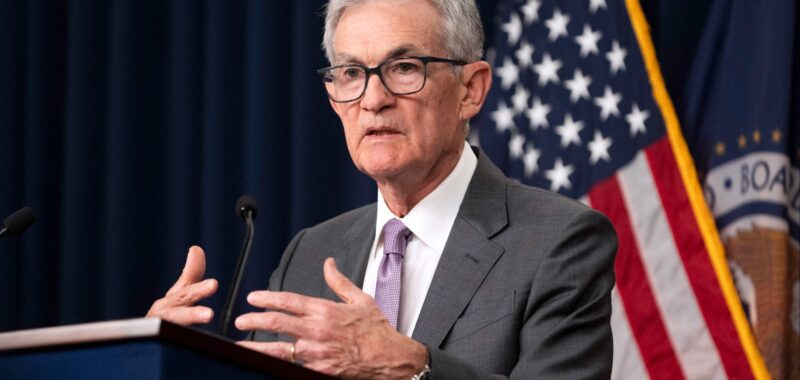Earlier this month, the U.S. Labor Department reported that job growth slowed in July and that unemployment hit 4.3%, the highest rate since October 2021. The weaker-than-expected report prompted Goldman Sachs to raise the odds of a recession from 15% to 20% and JPMorgan Chase to up the chances from 25% to 35%.
Based on the new data, some strategists think a recession is still on the way, but EY Chief Economist Gregory Daco says these worries are “overstated.”
“Labor market conditions have visibly softened, but economic momentum remains positive,” Daco told Entrepreneur in an email. “The U.S. economy is still moving forward at a modest to moderate pace.”
Related: ‘Stage Is Set:’ EY Senior Economist Expects Three Rate Cuts Before the End of the Year
Though the July jobs report showed that wage growth was at 3.6% year-over-year, the smallest gain since May 2021, and that the economy added 114,000 jobs compared to the at least 200,000 needed to keep up with population growth, Daco says a strong July retail sales report showed that people were still willing to shop and spend money.
Retail sales increased 1% last month, which relieves “recession fears” and confirms “consumer spending resilience,” he stated.
Related: Inflation Hits 3-Year Low, Analysts Predict Fed Will Cut Rates Next Month
Still, Daco predicts that the unemployment rate will keep rising, moving towards 4.5% going into 2025.
“We expect business leaders will continue to curb wage growth, hire with caution and proceed with strategic layoffs to contain costs,” Daco stated.
He forecasted that, as a result, economic activity will be slower going into 2025 and that households will be more prudent about spending because of high interest rates and slowing income growth.
When Is the Fed Cutting Interest Rates?
On the business side, high financing costs mean that businesses have to hire and invest carefully — but they aren’t retrenching, or cutting back, in response to the economic climate. The volatility of the economy “is more a reflection of the Federal Reserve being behind the curve in terms of easing policy than reflective of any fundamental economic weakness,” Daco asserted.
This is a good thing in Daco’s view because the Fed can adjust its policy. In a speech on Friday at Jackson Hole, Wyoming, Federal Reserve Chair Jerome Powell said that “the time has come for policy to adjust” to a cooling labor market, indicating that cuts to the federal funds rate were imminent.
 U.S. Federal Reserve Chair Jerome Powell. Photo by ROBERTO SCHMIDT / AFP
U.S. Federal Reserve Chair Jerome Powell. Photo by ROBERTO SCHMIDT / AFP
According to Daco, the question now isn’t whether or not the Fed will ease the federal funds rate in September, but by how much. He restated a prediction that EY senior economist Lydia Boussour told Entrepreneur last week — that there would be three rate cuts, each of at least 25 basis points (bps) or 0.25%, in September, November, and December, the three remaining scheduled meetings of the year.
“The Fed has fallen behind the curve, but Fed Chair Powell is playing catch-up,” Daco stated.
A 2024 Gallup poll shows that close to three in five Americans incorrectly think the U.S. is in a recession.
Related: Federal Reserve Holds Interest Rates, Projects One Cut Before End of Year: ‘Highly Attentive to Inflation Risks’

